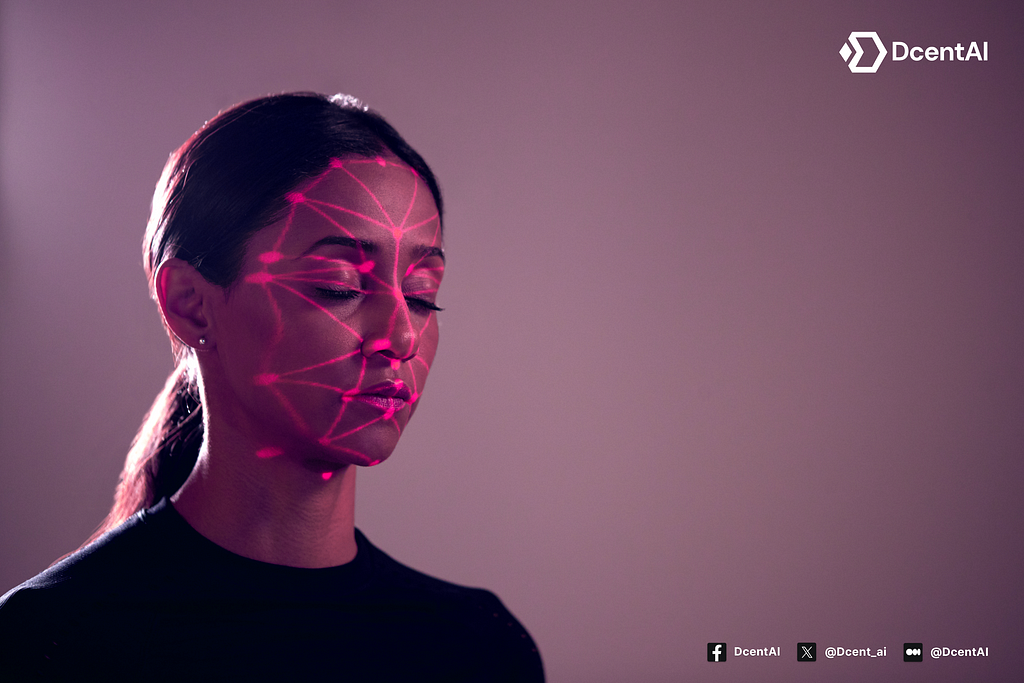Decentralized AI for Digital Identity Verification

Online identity verification is critical to guarantee cross-platform security and trust in today’s increasingly digital environment. As online services expand, so will the demand for secure, efficient, dependable digital identity verification solutions. While commonly utilized, centralized identity verification frameworks encounter issues such as data breaches, privacy concerns, and inefficiencies in managing massive data.
Decentralized AI provides a disruptive solution by distributing data over networks, increasing security and privacy.In this environment, DcentAI emerges as a vital actor, bringing novel decentralized AI solutions that have the potential to change how digital identities are validated, resulting in a more secure and efficient framework in the future.
Become a pioneer of DcentAI community!What is Decentralized AI in Digital Identity Verification?Decentralized artificial intelligence in digital identity verification uses distributed networks to process and verify identification data, as contradicted to centralized frameworks, which store and handle data in a single location. In a decentralized approach, identification data is distributed across various nodes, with each contributing to the verification process. This distribution improves security by lowering the danger of large-scale breaches, as there is no single point of failure. Decentralized AI also allows for real-time processing and analysis throughout the network, resulting in faster and more efficient identification verification. This solution provides improved privacy, security, and scalability over previous centralized frameworks by distributing the workload and utilizing AI for sophisticated verification.
Benefits of Decentralized AI in Digital Identity VerificationDecentralized AI in digital identity verification offers several key benefits:
Improved SecurityDecentralized AI reduces the risk of large-scale data breaches by spreading identity data across multiple nodes rather than storing it in a single, vulnerable database. This decentralized approach makes it harder for hackers to compromise the entire system, as they must infiltrate multiple nodes simultaneously.
Enhanced PrivacyUnlike centralized systems that store user data in large databases, decentralized AI processes identity information locally on each node. This approach limits exposure to centralized servers, ensuring that sensitive personal data remains in the user’s control and reducing the chances of unauthorized access or misuse.
Efficiency and ScalabilityDecentralized AI can handle real-time verification across global networks, making it more efficient than traditional systems. As demand for identity verification grows, the decentralized system can quickly scale by adding more nodes without compromising performance or speed, providing rapid and seamless verification across borders.
Resilience Against FraudWith decentralized AI, identity verification becomes more robust against fraud. The system cross-references data from multiple sources and nodes, identifying anomalies or inconsistencies. This multi-layered verification helps detect fraudulent activities early, ensuring more secure and accurate identity checks across the network.
Challenges in Implementing Decentralized AI for Digital Identity Verification
Here are some challenges in implementing decentralized AI for digital identity verification and how DcentAI can mitigate them:
Data Consistency Across NodeMaintaining consistent and synchronized identity data across multiple nodes is challenging in decentralized systems. Without proper synchronization, discrepancies in user data could lead to verification errors.
DcentAI utilizes advanced real-time synchronization techniques to ensure all nodes have up-to-date and consistent data. It minimizes the risk of data mismatches, allowing for accurate and reliable identity verification.
Compliance with Global RegulationsDigital identity verification involves handling sensitive personal data subject to strict regulations like GDPR and CCPA. Navigating different regulatory environments is complex in decentralized systems, as data flows across borders and jurisdictions.
DcentAI provides compliance tools to ensure that identity data is handled according to regional data protection laws. Its decentralized framework supports local processing of identity data, reducing the need for cross-border data transfers and simplifying regulatory compliance.
Security and TrustDecentralized systems divide control over several nodes, raising issues about each node’s security and the network’s integrity. It’s vital to ensure that all system nodes are secure to avoid unwanted access. DcentAI protects data across all nodes using top-tier encryption and multi-layered security procedures. By continuously monitoring for security threats and employing automated responses, DcentAI ensures high trust and protection across its decentralized networks.
Interoperability with Centralized SystemsMany organizations still rely on centralized identity verification systems, making the transition to decentralized AI complex. Ensuring that decentralized systems can integrate with existing infrastructures is a key challenge.
DcentAI offers adaptable solutions that allow decentralized AI systems to operate alongside traditional centralized platforms. Its flexible architecture enables seamless integration, reducing disruptions during the transition and ensuring that decentralized verification can coexist with legacy systems.
ScalabilityAs more users join a decentralized identity verification system, ensuring that the network can scale efficiently without losing performance or increasing latency is challenging.
DcentAI’s infrastructure is designed to scale efficiently with user growth. It dynamically adds new nodes and optimizes resource allocation, ensuring the system remains responsive and scalable despite high demand.
Real-World Implementations of Decentralized AI in Digital Identity Verification
Here are some real-world implementations of decentralized AI in digital identity verification:
CivicCivic is a decentralized platform that uses blockchain and AI to provide secure, decentralized identity verification services. Civic mitigates the threat of large-scale breaches by distributing user data throughout a decentralized network. The software enables real-time verification without keeping particular information on centralized servers, hence boosting privacy and security.
uPortuPort is another decentralized identity management system that allows users to create and control their digital identities without relying on a central authority. The platform uses AI algorithms to manage and verify identity information across decentralized networks. It ensures that users’ data remains private while enabling secure identity verification for various applications, such as banking and e-commerce.
Sovrin NetworkSovrin is a decentralized identification network that uses blockchain and decentralized AI to induce tone-autonomous individualities( SSI). These SSIs give individuals total control over their identity information, allowing them to change validated credentials with third parties on a picky basis. Sovrin’s decentralized system improves privacy and security by storing particular data on distributed ledgers rather than centralized databases.
BloomBloom offers a decentralized identity verification system built on blockchain technology. It uses AI to verify identity data while distributing this information across decentralized nodes, reducing the risk of identity theft or data breaches. Bloom focuses on secure, user-controlled identity verification for industries like finance and insurance, enhancing user privacy and security.
The Future of Decentralized AI in Digital Identity VerificationThe future of decentralized AI in digital identity verification will bring significant security, privacy, and efficiency advancements. As digital transactions and online interactions grow, secure and reliable identity verification is paramount. Decentralized AI provides a flexible solution by dispersing identity verification procedures over multiple nodes, diminishing reliance on centralized systems that are prone to breaches.
In the future, decentralized AI will enable flawless, real-time- cross-border verification, making it simpler for users to verify their identification for various services, including banking, healthcare, and e-commerce, while maintaining their privacy. Advanced AI algorithms will ensure that data remains encrypted and private, processed only at the necessary verification points. Additionally, decentralized frameworks will be better suited for detecting fraud by cross-referencing data from various sources, making it more tricky for deceitful actors to exploit flaws.
As decentralized AI technology advances, its operation in digital identity verification is anticipated to increase, giving consumers more control over their data while also offering enterprises more secure, scalable, and fraud-resistant verification techniques.
In SummaryDecentralized AI is set to modify the way digital identity verification is done by tackling essential problems like security, privacy, and the capability to handle large amounts of data. Unlike traditional centralized systems, which are at threat of data leaks and malicious activities, decentralized AI leverages a network of nodes to handle identity information more safely and effectively. This approach ensures the protection of user privacy by minimizing the threat of data being exposed to a single point while also offering instant, global identity checks.
DcentAI plays a crucial part in this conversion, offering cutting-edge technologies that make it easier for institutions and platforms to embrace decentralized AI to verify digital identities.DcentAI helps safeguard user information, prevent fraud, and ensure the secure expansion of identity verification systems by providing solutions that overcome the challenges of decentralization. As decentralized AI continues to develop, it’ll become an underlying element in creating a further secure, private, and robust digital field.
Become a pioneer of DcentAI community!To learn more about DcentAI, visit our Facebook and X accounts.Decentralized AI for Digital Identity Verification was originally published in Coinmonks on Medium, where people are continuing the conversation by highlighting and responding to this story.
